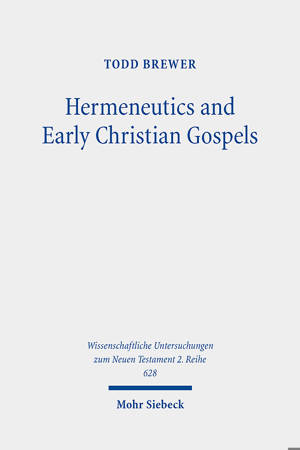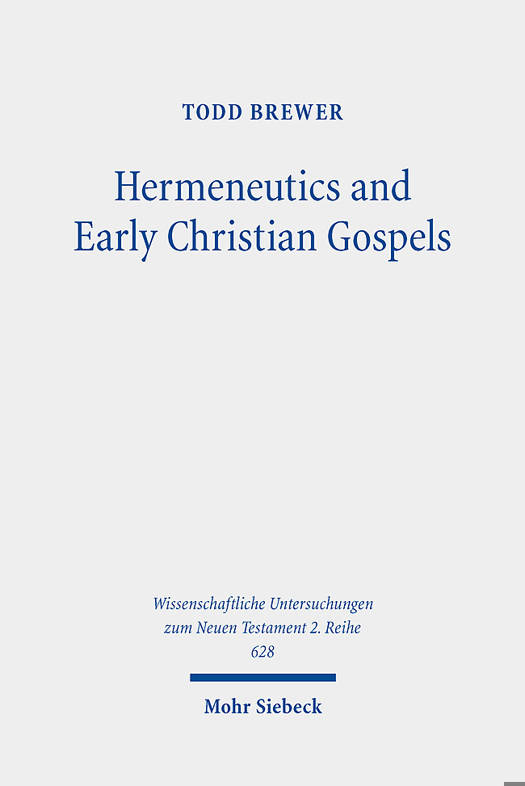
- Afhalen na 1 uur in een winkel met voorraad
- Gratis thuislevering in België vanaf € 30
- Ruim aanbod met 7 miljoen producten
- Afhalen na 1 uur in een winkel met voorraad
- Gratis thuislevering in België vanaf € 30
- Ruim aanbod met 7 miljoen producten
Zoeken
Hermeneutics and Early Christian Gospels
Narrative and Non-Narrative Readings of the Parables of the Tenants and Lost Sheep
Todd Brewer
Paperback | Engels | Wissenschaftliche Untersuchungen zum Neuen Testament 2. Reihe | WUNT II | nr. 628
€ 83,45
+ 166 punten
Omschrijving
In this hermeneutical study, Todd Brewer examines two contrasting interpretive methods to the Jesus tradition: narrative and non-narrative sayings. The early Christians composed both narrative Gospels (Matthew, Mark, and Luke), and non-narrative sayings Gospels (e.g., the Gospel of Thomas). What happens to Jesus' teachings when they are either understood within an unfolding story of his life or as isolated sayings? By studying the same parables across narrative and non-narrative interpretive settings, the inherent tendencies of these two methods can be ascertained. These contrasting hermeneutics are not only operative in early Christian Gospels, but also exemplified by modern interpreters such as Hans Frei and Rudolf Bultmann. A sayings approach is significantly different from a narrative approach, especially in relation the questions of history and Christology.
Specificaties
Betrokkenen
- Auteur(s):
- Uitgeverij:
Inhoud
- Aantal bladzijden:
- 198
- Taal:
- Engels
- Reeks:
- Reeksnummer:
- nr. 628
Eigenschappen
- Productcode (EAN):
- 9783161642487
- Uitvoering:
- Paperback
- Afmetingen:
- 155 mm x 232 mm
- Gewicht:
- 324 g

Alleen bij Standaard Boekhandel
+ 166 punten op je klantenkaart van Standaard Boekhandel
Beoordelingen
We publiceren alleen reviews die voldoen aan de voorwaarden voor reviews. Bekijk onze voorwaarden voor reviews.











